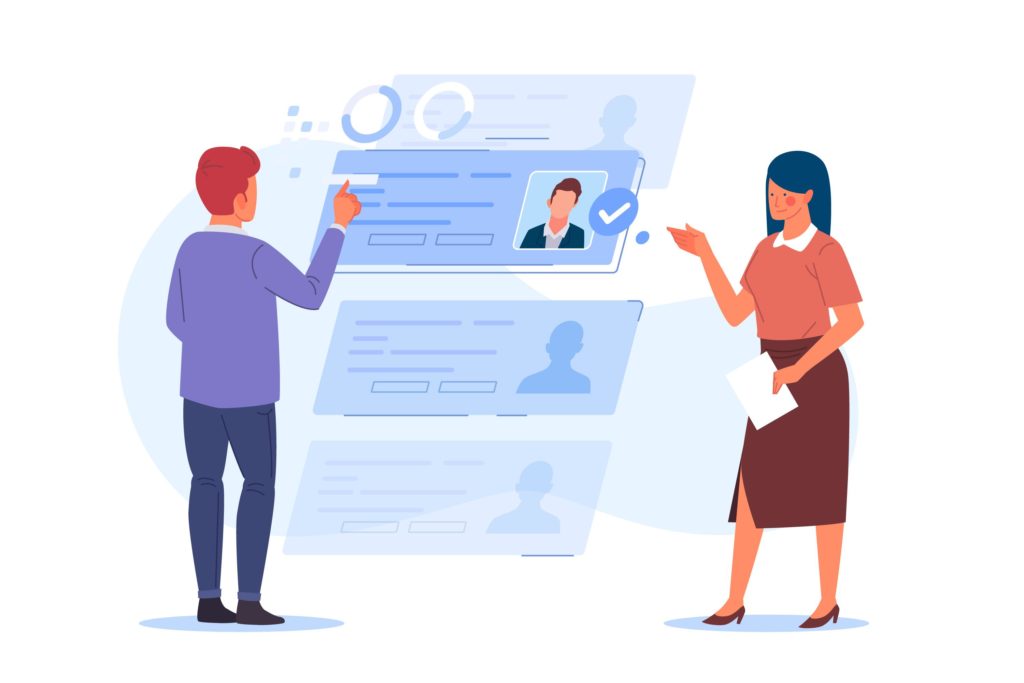
Everything You Need To Know About Customer Relationship Management
Customer relationship management (CRM) allows every type of business to drive growth and boost sales. It provides various benefits for all departments in your organization.
Let’s learn more about CRM in this article!
What Is Customer Relationship Management?
Customer relationship management (CRM) is a technology for managing all your company’s relationships and interactions with customers and potential customers. A CRM gathers customer interactions across all channels into one platform.
When it comes to CRM, people usually refer to a CRM system, which assists in sales management, contact management, productivity, etc. It creates a solution to help you maintain the relationships with your customers, colleagues, or suppliers.
Who Are Users Of CRM?

Everyone in the company can benefit from CRM systems. In other words, sales, business development, customer service, marketing, HR, or any other departments can make use of these systems.
►►► Bộ giải pháp tối ưu dành cho doanh nghiệp Sản Xuất: Phần Mềm Logistics, Hệ Thống MES, Phần Mềm Quản Lý Nhân Sự, Phần Mềm CRM, Phần Mềm Quản Lý Tuyển Dụng, Hệ Thống Văn Phòng Điện Tử

Furthermore, CRM deployment makes great improvements for companies of any size. For SMB, CRM systems help manage the complete buyer cycle, while they avoid overloading employees with mundane tasks. Implementing a scalable solution is beneficial for small businesses to leverage CRM capabilities together with company growth. CRM solutions allow SMB to deal with complicated processes as the increase in task volume. Thus, the companies can have an overall view of the data to analyze the business efficiency.
On the other hand, large enterprises earn benefits from the efficient process created by CRM systems. There is no more overload of enormous employees, documents, or complicated internal processes. Additionally, it helps automate daily tasks, gather data, align sales, service, and marketing teams. Lastly, the companies can have deep data analytics and optimize documentation management via CRM platforms.
How Does CRM Work?

Firstly, CRM systems begin collecting customer data such as websites, telephone numbers, email addresses, social media data via multiple channels and sources. These systems can gather other information like company news. After information organization, CRM tools can provide the comprehensive records of individuals and companies. Therefore, you can understand them better to maintain long-term relationships.
Moreover, a CRM platform can integrate with other applications to expand the functionality of your tools. You can connect it with tools like account management, document e-signing, and surveys. As a result, the platforms give you a 360-degree view of the customers.
Notably, a new CRM generation took a further step to have new features. Built-in intelligence reduces manual administrative tasks such as data entry. Therefore, you can have more time to do other tasks. Furthermore, a feature of automatically generated insights enables you to know customers better, predict their actions and feelings. You can make the right decisions depending on these insightful data.
How Can CRM Benefit To Your Businesses?

Cost-Effective
CRM systems cut time for managing the business. In turn, companies can save a lot of money with more effective working processes. They also require few needs for in-house IT and developers to implement software. Some tools like AI, Business Intelligence (BI), machine learning in these platforms drive down costs for businesses as well.
Sales Growth
All efforts of improving the sales process, automating tasks, and analyzing sales data can result in sales growth and sales productivity. CRM systems help you access customer feedback, chat, social media data, and email contents all in one place. So, you can build repeatable sales processes and convey the right messages at the right time.
Higher Efficiency
CRM systems allow businesses to manage major daily tasks in one single space. This feature helps improve better workflow, project management, and easier collaboration between employees. Automation reduces repetitive tasks and frees up time for cognitive tasks. Dashboards and analytics enable you to get more insights and optimize business processes.
Better Customer Service
The notable features of CRM are to manage contacts, gather leads and customer information to set up profiles. All of them give you simple access to necessary data about customer behavior such as purchase history, communication across channels. Therefore, you can always get updated about customers without asking them over and over. You also tackle problems with best practices and less effort to enhance customer loyalty.
Better Analytics
The analytical tools in CRM help your data available and relevant to meet your business needs. All finance data, sales data, and marketing data in CRM become visible metrics thanks to data mining and data warehousing. Hence, these tools will benefit customer acquisition/retention, and better data management.
Retain More Customers
Retention and churn rates are extremely important determiners for a company’s success; customer churn is a major obstacle to business growth. CRM tools like sentiment analysis, automated ticketing, and customer support and customer service automation can dramatically improve your retention by letting human agents defuse problems. Analytics tools that look at customer life cycles can show you when churn happens and why, so you can identify and address pain points.
Business success depends enormously on retention and churn rates. Especially, customer churn plays as the main obstacle to business growth. CRM solutions come into the market and bring useful tools such as automated ticketing or sentiment analysis to improve retention rates. These tools can assist agents tackle problems quickly and effectively.
Automate Mundane Tasks
CRM systems automate tasks of marketing, sales, and service, while reducing a large quantity of repetitive tasks. This innovation frees more time for managers/employees to focus on human-related tasks like communication with customers.
There are automation tools for data entry, drip email marketing, lead tracking, customer manager, etc. So, you can operate businesses smarter with less effort.
Summary
You now understand the definition of a customer relationship management system, its target users, operations, and benefits. However, there is more knowledge to explore about the CRM system. In the next articles, you can learn more on which popular CRM systems, their pros and cons, and other information on CRM.
Stay tuned and wait for the future articles!

SmartOSC DX là đơn vị cung cấp chuyển đổi số hàng đầu tại Việt Nam. Là động cơ thúc đẩy sự thành công trong quá trình chuyển đổi số của Baemin, Daikin hay VDI, bộ giải pháp của chúng tôi được tạo ra để phát hy tối đa giá trị của từng doanh nghiệp trong kỉ nguyên số




Để lại bình luận tại đây